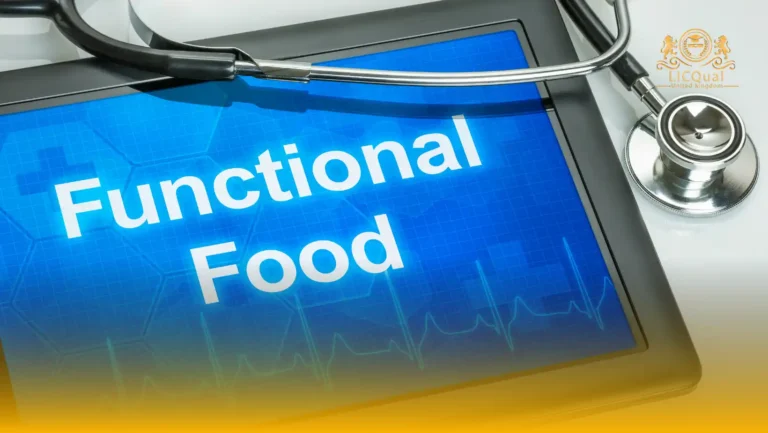The LICQual Level 3 Certificate in Travel Medicine (Cert TM) is a specialised qualification designed for healthcare professionals seeking to expand their expertise in travel-related healthcare and disease prevention. This course is not intended for beginners; it is specifically tailored for learners already working in medical, nursing, or allied health environments who wish to enhance their career prospects, broaden their knowledge, and strengthen their Continuing Professional Development (CPD).
Learners undertaking this programme will gain a comprehensive understanding of travel medicine, including the prevention and management of travel-related illnesses, vaccination protocols, health risk assessment, and the provision of tailored medical advice for travellers. The curriculum has been developed to meet international standards, ensuring that learners acquire both theoretical knowledge and practical skills necessary for professional growth in this field.
Centres delivering the LICQual Level 3 Certificate in Travel Medicine must maintain high standards of training. This includes employing competent and qualified staff, providing access to all necessary learning materials, and ensuring a supportive environment for learners to succeed. By combining high-quality instruction with practical experience, learners are equipped to make informed medical decisions and deliver safe, effective care in travel medicine.
Ideal for doctors, nurses, pharmacists, and other healthcare practitioners, this qualification allows learners to provide specialised travel health services, improve patient outcomes, and take on advanced roles in clinical practice. By completing this programme, learners will strengthen their professional credentials and remain at the forefront of travel medicine practice.
Course Overview
Qualification Title
LICQual Level 3 Certificate in Travel Medicine (Cert TM)
Total Units
6
Total Credits
24
GLH
120
Qualification #
LICQ2200863
Qualification Specification
To enroll in the LICQual Level 3 Certificate in Travel Medicine (Cert TM), applicants must meet the following criteria:
|
Qualification# |
Unit Title |
Credits |
GLH |
|---|---|---|---|
|
LICQ2200863-1 |
Principles of Travel Medicine |
4 |
20 |
|
LICQ2200863-2 |
Pre-Travel Health Assessment |
4 |
20 |
|
LICQ2200863-3 |
Travel-Related Infectious Diseases |
4 |
20 |
|
LICQ2200863-4 |
Immunisation and Vaccination Protocols |
4 |
20 |
|
LICQ2200863-5 |
Traveller Safety and Health Promotion |
4 |
20 |
|
LICQ2200863-6 |
Professional Practice and CPD in Travel Medicine |
4 |
20 |
By the end of this course, learners will be able to:
Unit 1: Principles of Travel Medicine
- Understand the scope and importance of travel medicine in global healthcare.
- Explain the key principles of disease prevention for travellers.
- Identify the roles and responsibilities of a travel medicine practitioner.
- Evaluate global health risks and their impact on traveller safety.
Unit 2: Pre-Travel Health Assessment
- Conduct comprehensive pre-travel health assessments for diverse travellers.
- Identify high-risk travellers and provide appropriate advice.
- Review medical history and vaccination records to inform travel planning.
- Develop tailored preventive strategies to minimise travel-related health risks.
Unit 3: Travel-Related Infectious Diseases
- Recognise common infectious diseases encountered during travel.
- Apply prevention, diagnosis, and management strategies for travel-related infections.
- Analyse regional disease prevalence and risk factors.
- Advise on the use of vaccines, prophylaxis, and hygiene measures for travellers.
Unit 4: Immunisation and Vaccination Protocols
- Understand the types and indications of vaccines in travel medicine.
- Implement travel-specific vaccination schedules safely.
- Demonstrate correct handling, storage, and administration of vaccines.
- Monitor and manage potential adverse effects of vaccines.
Unit 5: Traveller Safety and Health Promotion
- Advise travellers on food, water, and environmental safety precautions.
- Identify and mitigate risks of accidents, injuries, and chronic disease exacerbations.
- Recognise mental health considerations during travel and provide guidance.
- Deliver effective patient education and communication strategies.
Unit 6: Professional Practice and CPD in Travel Medicine
- Apply ethical, legal, and professional responsibilities in travel medicine practice.
- Integrate evidence-based practice in the delivery of travel health services.
- Implement clinical governance and risk management strategies to ensure patient safety.
- Develop and maintain a plan for Continuous Professional Development (CPD).
The LICQual Level 3 Certificate in Travel Medicine (Cert TM) is designed for healthcare professionals who want to expand their expertise in travel health, vaccination protocols, and the prevention of travel‑related illnesses. This Travel Medicine Level 3 course is ideal for doctors, nurses, allied health professionals, and public health specialists seeking CPD accreditation, career advancement, and an internationally recognized qualification. It is not intended for beginners but for those already working in healthcare who want to strengthen their specialist knowledge and clinical skills in travel medicine.
1. Medical Doctors and Physicians
- Enhance diagnostic and advisory skills in travel‑related healthcare
- Gain advanced knowledge of tropical diseases and global health risks
- Improve patient outcomes with evidence‑based vaccination protocols
- Strengthen expertise in pre‑travel consultations and risk assessments
- Earn a globally recognized travel medicine certification
2. Nurses and Allied Health Professionals
- Build confidence in supporting patients with travel health needs
- Learn patient‑centered approaches to vaccination and disease prevention
- Expand scope of practice with specialized travel medicine training
- Fulfill CPD requirements while advancing professional expertise
- Increase employability in clinics, hospitals, and travel health centers
3. Public Health and Community Health Professionals
- Address the growing importance of travel health in global mobility
- Learn preventive strategies for managing travel‑related illnesses
- Support community health programs with travel medicine expertise
- Gain skills to manage vaccination campaigns and awareness initiatives
- Strengthen role in public health and international health programs
4. Travel Health Specialists and Advisors
- Deepen expertise in pre‑travel consultations and health risk assessments
- Learn evidence‑based approaches to travel vaccinations and prophylaxis
- Strengthen skills in advising travelers on region‑specific health risks
- Gain recognition with a Level 3 Travel Medicine qualification
- Broaden career opportunities in travel clinics and advisory services
5. Laboratory and Diagnostic Professionals
- Enhance knowledge of diagnostic testing for travel‑related diseases
- Learn advanced techniques for identifying tropical infections
- Improve accuracy in laboratory reporting and patient support
- Gain CPD credits while advancing technical expertise
- Strengthen career profile in diagnostic and research laboratories
6. Humanitarian and NGO Healthcare Workers
- Prepare for global assignments with travel medicine expertise
- Learn strategies for managing health risks in high‑risk regions
- Support vulnerable populations with evidence‑based care
- Gain international recognition with a CPD accredited qualification
- Strengthen readiness for fieldwork in humanitarian missions
7. International Healthcare Professionals
- Obtain a globally recognized travel medicine certificate
- Align with UK and international healthcare standards
- Improve career mobility across countries and regions
- Gain competitive advantage in global healthcare markets
- Access structured, flexible learning designed for busy professionals
Centres delivering the LICQual Level 3 Certificate in Travel Medicine must maintain the highest standards of training to ensure learner success. Requirements include:
- Qualified Staff: Centres must employ competent and experienced healthcare professionals, including doctors, nurses, pharmacists, and clinical educators, to deliver both theoretical and practical training.
- Training Facilities: Centres should provide access to clinical environments, consultation rooms, and simulation facilities for practical sessions.
- Learning Resources: All essential learning materials, including textbooks, clinical guidelines, immunisation resources, and digital learning tools, must be available to learners.
- Health and Safety Compliance: Centres must comply with health and safety regulations, infection control procedures, and clinical governance standards to ensure learner safety.
- Assessment and Support: Centres should implement robust assessment procedures and provide ongoing learner support, including mentoring, feedback, and guidance throughout the course.
- CPD and Professional Development: Centres should encourage and facilitate Continuous Professional Development (CPD), enabling learners to remain up to date with best practices in travel medicine.
By meeting these requirements, centres ensure a high-quality learning experience, equipping learners with the knowledge, skills, and professional competence required to excel in travel medicine practice.
Assessment and Verification
All units within this qualification are subject to internal assessment by the approved centre and external verification by LICQual. The qualification follows a criterion-referenced assessment approach, ensuring that learners meet all specified learning outcomes.
To achieve a ‘Pass’ in any unit, learners must provide valid, sufficient, and authentic evidence demonstrating their attainment of all learning outcomes and compliance with the prescribed assessment criteria. The Assessor is responsible for evaluating the evidence and determining whether the learner has successfully met the required standards.
Assessors must maintain a clear and comprehensive audit trail, documenting the basis for their assessment decisions to ensure transparency, consistency, and compliance with quality assurance requirements.







